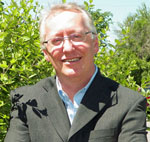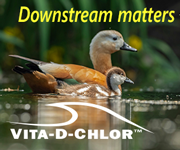 |
||||||||||||||||||||||||
| Subscribe | Past Issues | www.cwwa.ca | Water Source Magazine | ||||||||||||||||||||||||
|
CWWA News
CWWA can only exist through its volunteers who form the technical committees, review federal policies and legislation, provide critical input at the federal level, and create the program for our national conference. Many of them step up to serve on the Board of Directors and even take on Executive roles. We’ve been wanting to recognize our volunteers for many years, but wanted to find something unique to CWWA – that came in the image of the toque.
Federal Initiatives
On November 7, 2023, the Commissioner of the Environment and Sustainable Development issued a report showing that the federal government is not on track to meet the 2030 target to reduce greenhouse gas emissions by at least 40% below the 2005 level by 2030. On June 13, 2023, Bill S-5, Strengthening Environmental Protection for a Healthier Canada Act became law. The Bill made important changes to the Canadian Environmental Protection Act 1999 (CEPA) for the first time in over 20 years. With this Bill, the Government of Canada recognizes that every individual in Canada has a right to a healthy environment (“the Right”) as provided under CEPA. The Government of Canada also has a duty to protect the Right when making decisions under CEPA.
CWWA was invited to appear before the Parliamentary Standing Committee on the Environment and Sustainability. The Standing Committee, has embarked upon a two year project to look into Freshwater Protection for Canada. They are now inviting key stakeholders to appear before the Committee as expert witnesses. The Committee is chaired by Mr. Francis Scarpaleggia, MP for Lac-Saint-Louis, who has been a longtime supporter of the CWWA – regularly attending our Window on Ottawa and webinars. Member News
CWWA is so very pleased to share the exciting news that our friend and colleague, Peter Vanrolleghem of the Université Laval has been awarded the prestigious NSERC Donna Strickland Prize for Societal Impact of Natural Sciences and Engineering Research. Dr. Vanrolleghem (just Peter to most of us) is a longtime member of CWWA and a longtime leader of the Canadian Association on Water Quality (CAWQ). Peter has represented Canada to the International Water Association (IWA) and will be the Congress President when Canada hosted the IWA’s World Water Congress & Exhibition in Toronto in August 2024.
A new guideline technical document from Health Canada proposes to slightly lower the aesthetic objective level of iron in drinking water. Canada formed the initial iron guideline in 1978 at ≤ 0.3 mg/L, and is now proposing to lower it to ≤ 0.1 mg/L. Comment deadline: November 28, 2023. CWWA’s Water Quality Committee is reviewing the Guideline and will submit comments to Health Canada. We’ll share our final comments in next month's Bulletin. Statistics Canada is developing a Census of Environment to catalogue ecosystems in Canada, track their size and condition over time and measure the ecosystem services provided. Comment deadline: December 1, 2023. Access more information by email at: consultativeengagement-mobilisationconsultative@statcan.gc.ca. Turning Tides
Snippings & Clippings
C&EN Per- and polyfluoroalkyl substances (PFAS) are ubiquitous synthetic chemicals found in the air, water, and soil. They have contaminated drinking water, accumulated to levels of concern in some fish, and entered the bloodstreams of animals and humans, raising serious health concerns. Marketplace On an August day outside Sacaton, the capital of the Gila River Indian Community, a construction crew was digging a trench. Lengths of bright blue pipe, 4 feet in diameter, were piled up on the work site. Associated Press About four decades ago, when the Environmental Protection Agency was first trying to figure out what to do about lead in drinking water, Ronnie Levin quantified its damage: Roughly 40 million people drank water with dangerous levels of lead, degrading the intelligence of thousands of kids. In a big step to bring significant resources to development of a statewide buildingperformance standard (BPS) proposal, Gov. Newsom signed Senate Bill 48, the BuildingEnergy Savings Act (SB 48) on October 7. |
||||||||||||||||||||||||









